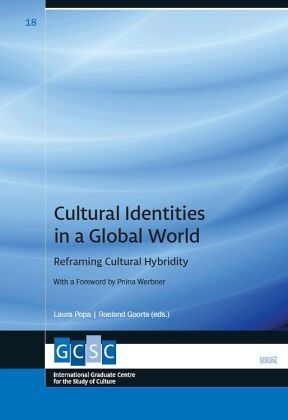
Cultural Identities in a Global World - Reframing Cultural Hybridity
| Verlag | WVT Wissenschaftlicher Verlag Trier |
| Auflage | 2024 |
| Seiten | 288 |
| Format | 15,5 x 1,5 x 22,5 cm |
| Gewicht | 528 g |
| Artikeltyp | Englisches Buch |
| Reihe | Giessen Contributions to the Study of Culture 18 |
| ISBN-10 | 3989400428 |
| EAN | 9783989400429 |
| Bestell-Nr | 98940042A |
The history of the hybridity concept and the literature about hybridity show the continuous transformation of its meaning(s). It ranges from biological racist connotations in 19th-century colonialism to a powerful subversive tool for analysing asymmetric colonial encounters in 20th-century postcolonial studies. In the 20th century, hybridity and adjacent notions, such as transculturation, denoted this asymmetry. Bringing them into dialogue again in the 21st century, these and other related concepts may guide analyses of planetary cultural, economic, and political entanglements that avoid the false objectivism that the notion of 'globalisation' implies. As a result, the book critically reconsiders cultural hybridity as a concept for a world globally interconnected without losing the local articulations. So, this book argues that hybridity should be reframed with a view to the connections and entanglements it enables and complicates. As the world has become increasingly interconnect ed in the last few decades, this book investigates connectivity, relationships, and entanglements through new meanings and adjacent concepts, methods, and social expressions of hybridity. Methodologically, it examines hybridity within the framework of an increasingly interconnected global world, while analysing identities that intersect in cultural, socio-political, religious, and virtual spaces. The purpose of these multifaceted critical explorations is to reframe the potential and limits of hybridity in shedding light on the intersections between cultures on a global scale.
CONTENTS
PNINA WERBNER
Foreword1
LAURA POPA
Introduction3
I. HYBRIDITY AS A CONCEPTUAL TOOL IN THE STUDY OF CULTURE FORMATION
R. DANIEL SHAW
Creating New Cultural Space: Hybridity, Theology, and Authentic Identity17
LAURA POPA
Hybridity and Protestantism in the Twenty-First-Century Global World31
CLARA VERRI
Autofiction as Intensification and Author-Oriented Approach: A Literary Practice of Hybridity45
ANDREAS LANGENOHL
Hybridity and Economy59
IYARI MARTÍNEZ MÁRQUEZ
Invader Species: A Metaphor for the Study of Hybridisation in Gabriel García Márquez' El rastro de tu sangre en la nieve (1976)75
LUISA CONTI, FERGAL LENEHAN AND ROMAN LIETZ
Postdigitality as Lifeworld Hybridity: A Discursive Essay87
II. HYBRIDITY AS A METHODOLOGICAL TOOL IN ACADEMIC RESEARCH
ROELAND GOORTS
A Study on the Hybrid Nature of the Protestant Identity in the United Provinces During the Dutch Golden Age101
JANA TIBORRA
Hybridisations in Practices of Photographic Showing: The Pictorial Dimension of Hybridity129
BRAHIM BENMOH
(Re-)Framing Cultural Hybridity, Exile, a nd the Unhomely in Post-9/11 Novel: Mohsin Hamid's The Reluctant Fundamentalist (2007)145
ELIF SÜSLER-ROHRINGER
Hybrid Appropriations: Sümerbank Textile Patterns 1950-1980s157
JUAN CAMILO BRIGARD
Hybridising the Voice of the Farian Chasqui: Dismantling the Poetics of History of the FARC177
III. HYBRIDITY AS SOCIAL PRACTICE IN EVERYDAY LIFE
X. AMY ZHANG
Hybrid But Unequal: Three Museums Negotiating the Display of Islamic Art199
EZGI SEREF
Legal Technologies In-Between the Past and the Present Crises: The Signing On/Off the Istanbul Convention 211
ATHIRA B. K.
Weddings and Digital Circuits: The Case of an Emergent Bridehood in Kerala, India227
ALESSANDRA PUCCINI-MONTOYA, CÉSAR MORA-MOREO AND ENRIQUE URIBE-JONGBLOED
Local M
